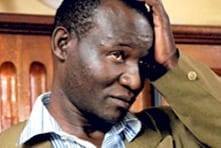High Court of Malawi Clarifies Law on Abortion
BLANTYRE, 06.24.2021 – (Press Release): The Malawi High Court has reaffirmed the statutory protections for legal abortion under narrow circumstances. In its ruling, the court reiterated that despite the existing legal restrictions on access to safe and legal abortion under sections 149, 150, and 151 of the Penal Code, section 243 makes exception when the life and health of a woman or girl is in danger.
In the ruling, Justice Mzonde Mvula clarified that women and girls seeking to access abortion in Malawi must first present themselves before a doctor and expressly make a request for abortion services based on existing conditions. At that point, the doctor would then review the request and make a decision. According to the ruling, women and girls seeking abortion should demonstrate to the doctor how a pregnancy would undermine their health and life in general. While the Penal Code only allows for abortion when the life of the woman or girl is in danger because of the pregnancy, the court recognized in this ruling that preservation of life also entails safeguarding the mental and physical health of the woman or girl.
Reacting to the ruling, Dr. Godfrey Kangaude, an attorney and reproductive health scholar, said: “This is a good development since current legal provisions on termination of pregnancy are couched in language that makes it difficult for health providers to implement. This ruling is a welcome step towards an authoritative interpretation of the abortion law and opens the door for women and girls to seek lawful access to safe abortion in Malawi.” Dr. Kangaude expressed optimism that the Ministry of Health will take the initiative to advance necessary legal and policy reforms to address the inconsistencies between the current law and Malawi’s obligations under national and international law on reproductive rights of women and girls.”
Abortion is not uncommon in Malawi and recent estimates show that six to eighteen percent of maternal deaths in Malawi resulted from unsafe abortion complications. The ruling was preceded by the case of a 15-year-old adolescent named CM, who was assaulted, became pregnant and sought legal redress from the High Court following a decision by Queen Elizabeth Central Hospital to deny her access to safe and legal abortion. In the application, CM was represented by Mlauzi Legal Solutions through the support of the Women and Law in Southern Africa Research and Educational Trust-Malawi, which works collaboratively with the Center for Reproductive Rights (the Center) to advance reproductive rights autonomy in Malawi.
Evelyne Opondo, Senior Regional Director for Africa, Center for Reproductive Rights, explained, “Malawi ratified the Protocol to the African Charter on Human and Peoples’ Rights on the Rights of Women in Africa (Maputo Protocol), therefore the country’s leadership is obligated to ensure the right to health of women and girls, and to make certain, sexual and reproductive health is respected and promoted.” Ms. Opondo further reiterated that Malawi’s ratification of the Maputo Protocol requires the government to take all appropriate measures to protect the reproductive rights of women and girls. The measures include authorizing medical abortion in cases of sexual assault, rape, incest, and where the continued pregnancy endangers the mental and physical health or life of the woman.
About the Partners:
- The Center for Reproductive Rights is a global human rights organization that works to ensure reproductive rights are protected in law as fundamental human rights for the dignity, equality, health, and well-being of every person.
- The Women and Law and Southern Africa Research and Educational Trust-Malawi (WLSA-Malawi) is a women’s rights NGO that exists to advance women’s socio-legal development by conducting action research, training and advocacy in Malawi.
###



